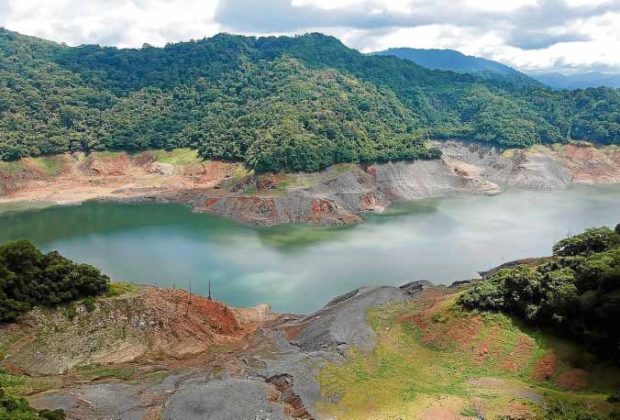Angat Dam still outside normal high levels despite rains brought by Tisoy
MANILA, Philippines – Angat Dam, Metro Manila’s primary source of water, is still 18 meters short of its normal high water level despite rains brought by then-Typhoon Tisoy.
The Philippine Atmospheric, Geophysical, and Astronomical Services Administration (Pagasa) said on Wednesday that water level as of Wednesday morning is now at 193.47 meters — a 4.50 meter increase compared to Tuesday’s 188.97 meters.
Although the normal high water level is at 212 meters, Pagasa’s Hydro-Meteorology Division forecasts that this will still increase by around two to four meters, as rainfall from the mountains move downstream.
“‘Yong Angat Dam po ‘yong minomonitor po natin kasi nga po medyo mababa… Mayroon po kaming na-observe na halos 180 millimeters basin, ‘yong average ng rainfall within watershed ng Angat,” a Pagasa official said.
“Sa mga susunod na araw posible pa pong tumaas ‘yan ng two to four meters, so posible po siyang umabot ng 196 (meters) to 198,” he added.
The good news however is that Ipo Dam, located at the downstream trail of Angat, was filled up to its normal high level, even forcing authorities to release water so it would not overflow.
Ipo’s current level is at 101.2 meters while its normal high level is at 101 meters. Other dams also gained water from the torrential rains: La Mesa Dam in Quezon City is now 77.75 meters from 77.42 on Tuesday, and Ambuklao Dam in Benguet is at 741.72 meters from 741.57 meters.
La Mesa Dam’s normal high levels is at 80.15 meters, while Ambuklao’s is at 752 meters.
Pagasa said earlier that Severe Tropical Storm Tisoy (International name: Kammuri) has gradually weakened as it moved out of the country’s landmass.
It was last seen 290 kilometers west southwest of Subic in Zambales, packing maximum sustained winds of 95 kilometers per hour (kph) and gustiness of up to 115 kph.
Despite Tisoy’s movement, the weather bureau still warned of occasional heavy rains in the western side of Northern Luzon, Central Luzon, and Southern Luzon, also due to the prevailing northeast monsoon or Amihan.
According to the Hydro-Meteorology Division, three of the country’s major river basins — those in Bicol, Cagayan, and Pampanga — are currently being monitored for possible flooding.
